Swimming A Short Way Together
At seven thirty on a weekday morning, I’m standing on the slip in a quiet little cove in East Cork, looking at the flat calm, gently lapping water.
The tide has just turned. The water is, if not warm, in its relatively balmy early-autumn state.
The miracle of the sea is that it changes every day.
Frothy, choppy or wavy. Slate-grey, sky-blue, or summer green. Sparkling clear, murky with nutrients or full of storm-churned suspended sand: when you swim year round, you relish and comment on these different conditions.
Today, it’s heavy and becalmed, almost mercury-like in its polarised silvery sheen, clear to the bottom. The last of the dawn is warming the colours of the surface. This is one of the seas I love best.
A few days earlier, I sent the artist Vanessa Daws an email, entitled, “Want to go for a swim?”
Vanessa is an open water endurance swimmer. I swim year round, at least once per week, but no distance to speak of: a kilometre, maybe, or sometimes in summer, two.
Still, it’s a connection. So we’re going for a swim, or at least, getting in the water together. If you click play above, you can hear what that was like.
Remembering Mercedes Gleitze
In 1930, the renowned long-distance swimmer Mercedes Gleitze visited Cork and, to much local fanfare, undertook a 30-hour endurance swim at the Eglinton Street Baths.
Long since demolished, the site of the baths now houses Cork City Hall car park. A fascinating account of the event, which was publicised in the Cork Examiner, is here.
The swim was part of a tour of the country by Mercedes, an impressive pioneer in female sport, being both the first British woman to swim the English channel and the first woman to swim the Straits of Gibraltar, amongst innumerable other feats. By the time she finally hung up her towel and called it a day on her long-distance exploits, her personal record was a swim of 47 hours.

Born in Brighton to German parents, Mercedes was a secretary and stenographer who started swimming in the Thames. Her swimming prowess saw her become a glamorous public figure, who was endorsed by Rolex and who went on innumerable public tours and exhibition swims, including her Irish tour. She also founded a UK charity that provided flats for homeless families.
Vanessa’s first encounter with Mercedes happened when she was preparing for her own English channel swim.
As you will have heard in the podcast, she made a channel attempt in 2019, spending 12 hours in the water before having to abandon the crossing due to dangerous tides.
While researching channel swimming, she stumbled upon In The Wake of Mercedes Gleitze, a biography by Mercedes’ daughter, Doloranda Pember. “Through reading the book and getting in contact with Doloranda, I just kind of….fell in love with Mercedes Gleitze,” Vanessa says with a smile.
From one swimmer to another
Vanessa is Dublin-based, but is in Cork to commemorate and pay homage to Mercedes’ Eglinton Street Baths swim.
She’s going to be staging a one-off endurance relay in Midleton College swimming pool, where swimmers can sign up to swim a stage as part of the event, but that’s not all: poolside performances by musicians, poets and DJs will keep the swimmers entertained throughout the 30-hour event.
This might seem like a thoroughly modern addition, but actually, Vanessa explains, back on dry land after our brief swim, it’s very much in the spirit of how Mercedes used to operate.
“She’d have music and people reading her the paper and all sorts of things to entertain her and keep her spirits up,” Vanessa says. “Music seems to be a big part of her life: when she was swimming the channel, I don’t quite know how, but there is a photograph of a gramophone on a wooden boat, that they’d use to play records to her while she swam.”
“From my experience of the channel, it was so wavy that I don’t know how they did that.”
Having to give up and get out of the water without completing her own channel swim in 2019 took a psychological toll on Vanessa and she says she has not yet regained the physical fitness she had achieved in training for it.
But even Mercedes Gleitze took eight attempts to make her first full channel crossing and, like Mercedes, this is not Vanessa’s only feat.
She swam the entire length of Lough Mask, all 22.5 kilometres of it, in 2018.
“So at least I have done successful swim,” she says with a little laugh.
“The swim took me just over 10 hours,” Vanessa says. “I started off with a beautiful day and it got a bit foggy in the end, and the last bit was a kilometre of going up river, against the current. The most difficult part of that was that the river water was really cold. But the swimmers from Ballinrobe swimming club jumped in and swam the last bit with me, which was fantastic.”
Vanessa, who is originally from the UK, had lived in Galway and worked in an outdoor adventure centre on the lake before she took up open-water swimming. “In the village, they would have known me more as the artist, so they were like, ‘she swam the whole lake?!’” she says with a smile. “I was a hero for half a day.”
She’s also the only known person to have circumnavigated Lambay Island in Dublin Bay.
Numerous other projects of Vanessa’s meld art and swimming: she has trained for ice swimming in the frozen Pirita river in Estonia, staging a performance where participants had to hold ice cubes in their hands and throw buckets of iced water over her. She has installed swimming lanes in a bog in Ballycroy, Co Mayo. She has undertaken “urban swimming” in fountains and water features in London, Sofia and Dublin.
Swimming A Long Way Together
The Cork event commemorating Mercedes’ swim is one stage of a year-long series of events Vanessa is undertaking: the project is called Swimming A Long Way Together and Mercedes’ visits to Galway, Dublin and Donaghadee in Northern Ireland, from where she made eight attempts to swim the treacherous North Channel to Scotland, are also forming the basis of a series of other events.
“There will be exhibitions too, one in the Fabrica Gallery in Brighton, where Mercedes was from, and one in The Lab in Dublin; all the events are tracing the epic, pioneering swims of Mercedes Gleitze, so that’s our starting point,” Vanessa tells me.
The Dublin stage of the project happened in late August: a Swimposium, where participants traversed Dublin Bay, stopping for a series of talks and panel discussions, concluding with the performance of a song composed especially by folk musician Ruth Clinton of the band Landless.
After Cork, there’s Galway.
“In Galway, Mercedes swam from the Aran Islands and she was meant to land at Blackrock diving tower, but she came in at Spiddal instead,” Vanessa says. “There was a massive crowd and she had real celebrity status, so all the crowds were disappointed that she landed somewhere else. So the day after, she did a demonstration swim at Blackrock tower.”
“When we go to Galway next spring, I’ll be thinking about that. At each location, we’re thinking about what Mercedes did.”
Community engagement is very much at the core of Vanessa’s work: “Talking and discussions is a really important part of the work,” she says.
This sense of community is also at the heart of what Vanessa loves about open water swimming: the community of people that exist around their shared passion.
The Dryrobe Culture Wars
This desire for a sense of community in swimming, Vanessa acknowledges, is not true of everyone.
In fact, it’s not true of me.
I swim for physical pleasure, for immersion in the natural world, and also to escape and drown out the babble; if anything, to seek refuge from the human world.
I swim because for me, cold salt water is an analgesic.
It has the power to temporarily dissolve pretty much any emotional pain or psychological distress I encounter. I have a theory that shutting off and overriding the inner voice that tells you you don’t want to be submerged in cold water also temporarily shuts down a host of other, unwelcome inner voices: inner voices of self-doubt, negativity, painful memories, anxieties, all cease for a short time.
All that is left by the time you get out is calm.
Sea-swimming became one of the noted trends of the Covid crisis, with people taking to the water in unprecedented numbers. Perhaps they were bored and needed nearby activities, or perhaps they had learned the analgesic effects of cold water and were self-medicating through stress and uncertainty.
At any rate, it wasn’t long before the tiresomely ugly human traits of tribalism and competitiveness reared their heads: new swimmers can be slightly looked down on. In Dublin, the Dryrobe Culture Wars broke out, and spread throughout the country.
The muttering of old men upon the arrival of a gaggle of excited newbies in dryrobes and flipflops at their lifelong swimming spots is very real.
“Sea swimming is a beautiful thing, in fact, an art whose mistress should not be the few, but the many.”
- Mercedes Gleitze
Instead of celebrating the arrival of a throng of new enthusiasts, some of the more sporty long-standing sea swimmers have responded with clique-ish competitiveness; I’ve heard them, all summer long. If you’re not doing serious distance or you’re a fair-weather swimmer, you may be called a “dipper,” to differentiate you from the real swimmers.
I find that an ugly mentality and I’d rather stay out of earshot of it where possible.
Vanessa, who embeds herself with swimming communities basically everywhere she goes, says that’s all avoidable stuff.
“The sporty triathlete types is a different thing to what I’m into,” she says. “There are lots of people who are retired and of a different generation, for example, and I love talking to those swimmers.”
“I really love my swim buddies. It’s great when you meet someone who has the same pace as you and every time you breathe you see them there; I find that really comforting.”
What lies beneath
The comforting proximity of another human while in the water is certainly beguiling. When swimming in deep water, for me, there’s an uneasy awareness that you are out of your element. And that down below you in the gloom, there are creatures who are very much in their element.
The psychological strength to overcome these sensations must be immense for long-distance swimmers who spend many hours in the water with only their own thoughts and the sound of their own breathing for company, I’ve always thought.
For Vanessa, the presence of swim buddies is a partial antidote, but on her long swims, she also just has to knuckle down and deal with the presence of those thoughts. “I’m actually probably quite a nervous swimmer, considering the things I do,” she says with a laugh.
Is swimming addictive for her?
“Oh, yes,” she says. “You definitely start to feel a bit off if you haven’t been in for a couple of days.”
There are, of course, a great many things Vanessa loves about swimming, not least the sense of community and her lifelong love of water, but like her heroine, Mercedes Gleitze, the endurance element is a large part of the appeal.
“There’s a sense of accomplishment,” she says. “We saw that with the Dublin Swimposium, with the people who had stuck it out til the very end of the day: the sun came out on the beach, and there was this real sense that we had been on a big, long journey together.”
“I think with endurance, there’s an element of surprise about being able to achieve things that you might not have thought possible, with just a little bit of time, because all you really need is time.”
“And a pair of swimming togs.”
Vanessa Daws’ Swimming A Long Way Together Cork Endurance Swim will be held from Friday, October 1 at 15:30 to Saturday, October 2 at 21.30 at Midleton College swimming pool.
Tickets to participate by swimming some of the way are here.
There are a limited number of audience tickets for 50-minute slots throughout the 30 hours available here.

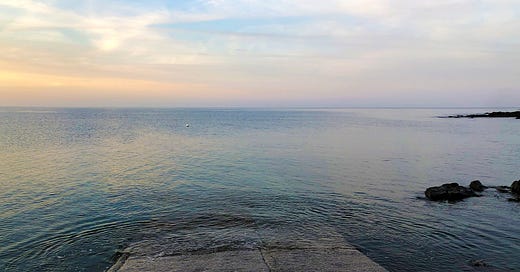

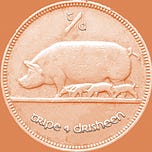



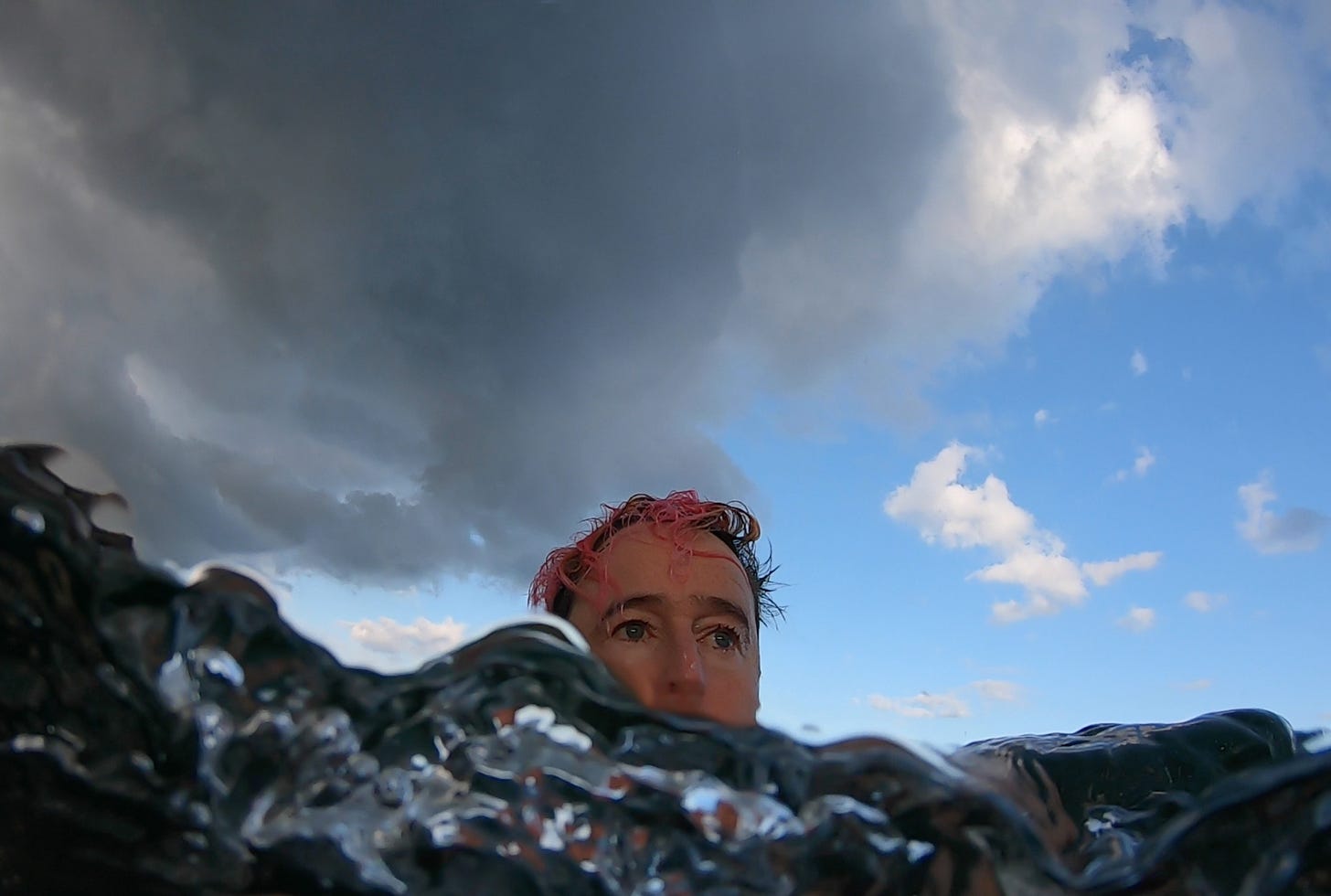
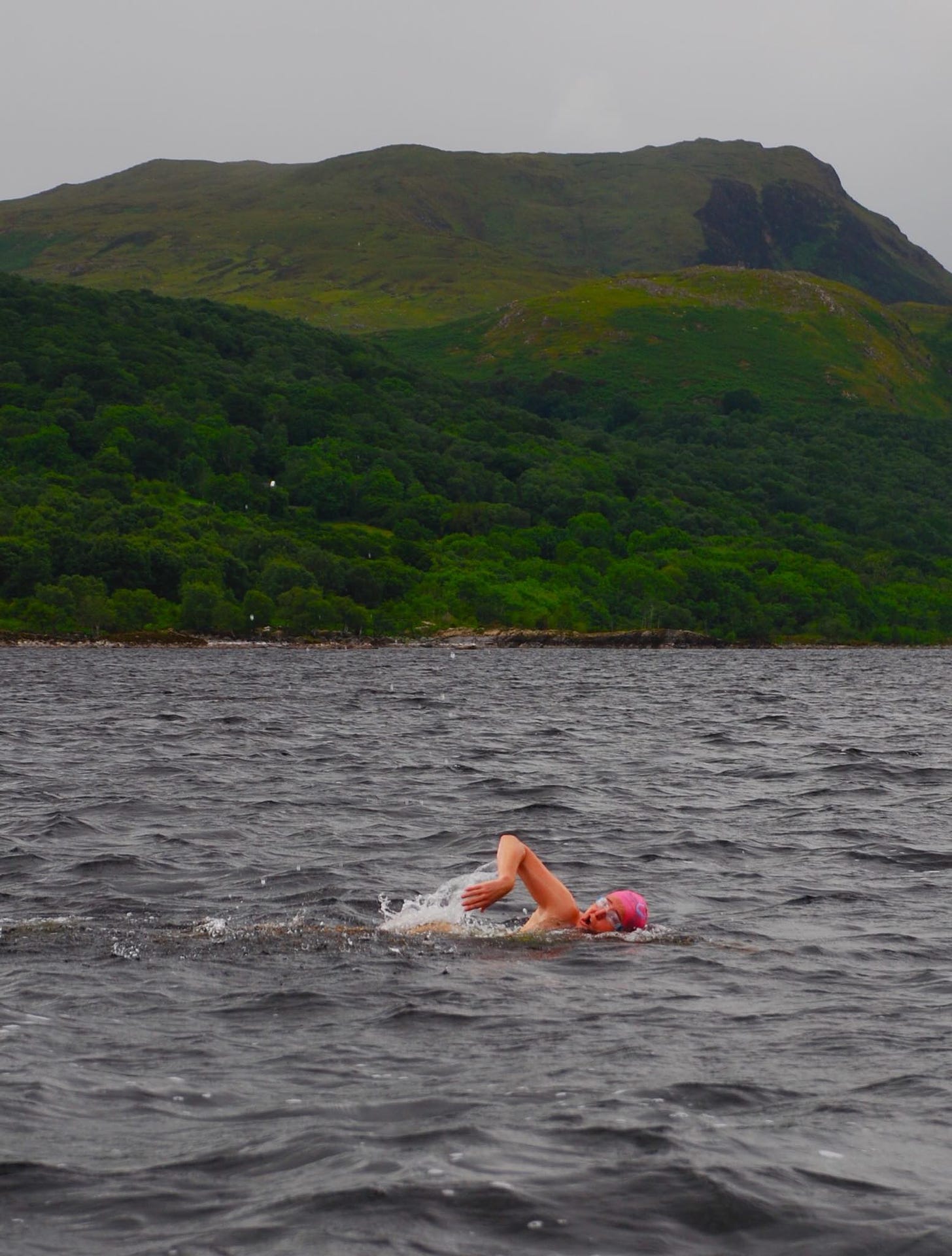
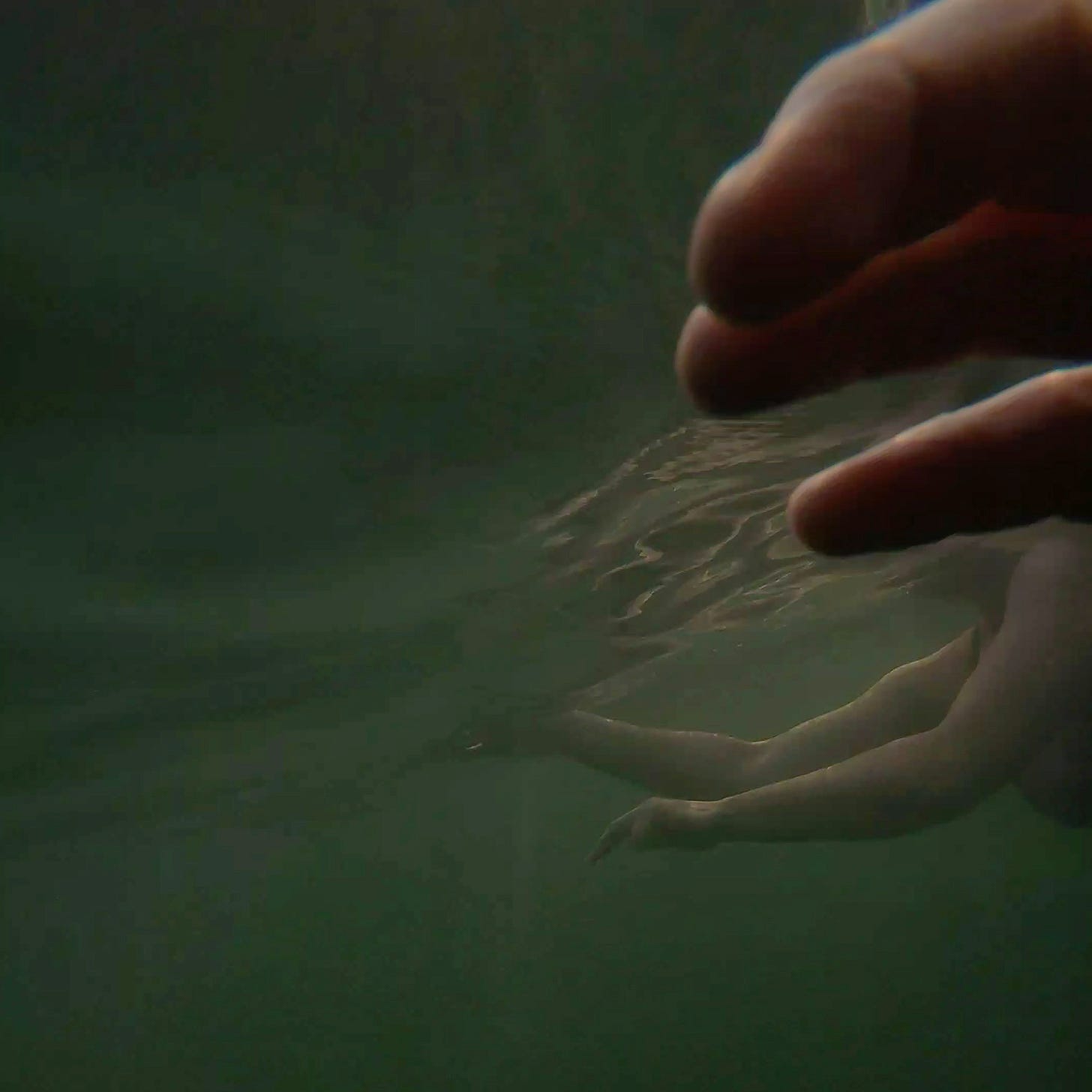



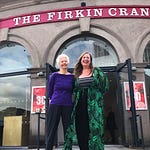






Share this post